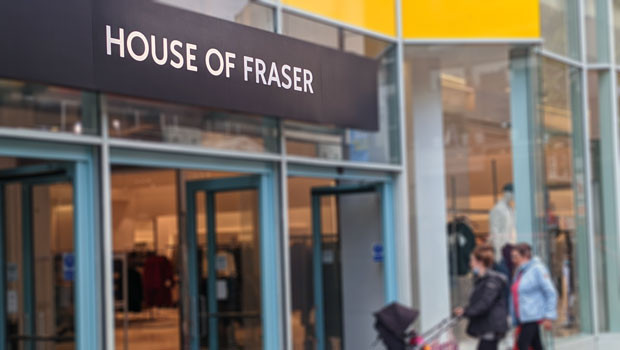Frasers Group lifts stake in Hugo Boss

House of Fraser and Sports Direct owner Frasers Group said on Monday that it has increased its stake in German fashion brand Hugo Boss to 32.8%.
ASOS
416.60p
17:15 23/12/24
Cboe DEM 50
18,943.26
16:30 23/12/24
Frasers Group
605.50p
16:40 23/12/24
FTSE 100
8,102.72
17:14 23/12/24
FTSE 250
20,419.09
17:09 23/12/24
FTSE 350
4,471.06
17:09 23/12/24
FTSE All-Share
4,428.73
16:44 23/12/24
General Retailers
4,645.29
17:09 23/12/24
Hugo Boss Ag
€44.03
16:30 23/12/24
Frasers now owns around 3.025m shares of common stock, representing a 4.3% interest in Hugo Boss, and 20.09m shares of common stock via the sale of put options, which is a stake of 28.5%.
"Frasers Group has extensive ambitions to grow the business inside and outside of the UK and is constantly exploring the potential for further expansion," it said. "Accordingly, Frasers Group's board of directors believe that the acquisition of direct and/or indirect strategic stakes within Hugo Boss, are in the ordinary course of business of the company."
Over the weekend, The Telegraph reported that Mike Ashley’s Frasers had bought a stake of more than 5% in UK fast fashion retailer Asos. It cited market sources as saying that Frasers had notified Asos late on Friday that it had become a significant shareholder.
Victoria Scholar, head of investment at Interactive Investor, said: "It is no surprise that Frasers Group is raising its stakes in Asos and Hugo Boss. In the summer, the company said it was planning more acquisitions after full-year profits increased to £366m versus £8.5m a year ago with sales up almost 31%. The group is clearly looking to diversify both at the higher end with Hugo Boss and away from the struggling high street towards online with Asos as it looks to spread its risk amid the challenging macroeconomic headwinds, namely rising cost inflation and the threat of a looming recession.
"As we’ve seen with results from Hermes and others, the higher end more luxurious part of retail exhibits greater resilience to the cost-of-living crisis with customers much more willing and able to absorb higher prices."